![Write Letters for Money [top 13 ways]](https://kountif.com/wp-content/uploads/2024/08/Write-Letters-for-Money-top-13-ways-.jpg)
Learning 2 syllable words is an essential step in building a strong foundation in language skills. Two syllable words, also known as words that have two syllables or words with 2 syllables, are a fundamental part of our vocabulary. In fact, understanding words with two syllables is crucial for effective communication and comprehension. In this article, we will delve into the world of two syllable words, providing a comprehensive list of words with 2 syllables.
We will explore the power of 2 syllable words and how they can enhance your language skills. Whether you’re a student looking to improve your language skills or a teacher seeking resources for your classroom, this list of words with two syllables will be a valuable tool. So let’s dive in and discover the power of 2 syllable words, and learn how to effectively use words with two syllables in our everyday communication. With this list of 2 syllable words, you’ll be well on your way to mastering the art of language!”
Table of Contents
ToggleExamples of 2 syllable words
Two-syllable words, which are made up of two separate sound units, are common in many parts of speech, such as nouns, verbs, adjectives, and adverbs. These kinds of words are very important to English and give the language flow and depth. To help you understand this idea, here are some examples from different types of words that show how varied and diverse the English language is with two-syllable words.
Examples of Words by Type and Syllable
| Word Type | Examples |
|---|---|
| 2 Syllable Noun | table, chair, book |
| 2 Syllable Adjectives | happy, sunny, funny |
| 2 Syllable Adverbs | quickly, softly, loudly |
| Verbs with two syllables | travel, listen, explore |
Types of 2 syllable words
There are several types of two-syllable words that you can use in your writing or speaking. Some common examples include:
Compound Words
These are created by combining two different words to create a new one with a different meaning from the meanings of its parts. For example, “sunshine” means direct sunlight, and “football” means a popular sport.
Reduplicated Word
This category includes words that sound catchy and often musical when they repeat the exact phrase twice. For example, “tick-tock,” which sounds like a clock, or “chit-chat,” which means relaxed talk, are examples.
Blend Words
These are new words made by combining parts of two different words to create a new word that combines their meanings. For example, “brunch” is a meal that serves as both breakfast and lunch.
Simple Two-Syllable Words
These are simple 2 syllable words that don’t belong to any of the other groups. They are the building blocks of the English language. An example is “apple,” a basic word for a popular food that doesn’t come from combining, adding to, or copying.
Phonetics of 2 syllable words
Regarding phonetics, two-syllable words follow specific patterns that can be helpful to know when using them in your writing or speech.
Stress on the first syllable
When a word has two syllables, it is every day in English for the first syllable to gain stress. This fundamental guideline of pronunciation works for a large number of words. Examples include “table,” where “ta-” is stressed more than “-ble,” “happy,” where “hap-” is pronounced with greater clarity than “-py,” and “orange,” where the emphasis is greater on the first syllable “or-” than “-age.”
Stress on the second syllable
Pronunciation is only one of the exceptions in English. Certain words, especially those that finish in -er, -or, or -ar, have a different rhythmic pattern when the stress moves to the second syllable. In the word “teacher,” for example, the emphasis is on “-cher” rather than “teach-.” In a similar vein, “actor” stresses “-tor,” whereas “dollar” emphasizes “-lar.”
Equal stress on both syllables
It’s interesting to note that there are English words with two syllables that have equal emphasis on both syllables, meaning that neither syllable is more stressed than the other. Words like “listen,” “melon,” and “paper” are examples of this kind. Non-native speakers may need help understanding and replicating the nuance of equal stress in certain situations.
Usage of Two-Syllable Words
Incorporating 2 syllable words into your everyday communication can significantly enhance the effectiveness and impact of your language skills. Here are a few ways to use these words in your day-to-day interactions:
Everyday Language
Words with two syllables are essential for both spoken and written communication. They use phrases such as movement and flow, which makes conversations more lively and exciting. In various situations, these words make conversation more accessible and enjoyable by bridging the gap between simple and complicated.
Academic and Professional
They play a crucial role in articulating complex ideas succinctly, thereby enhancing the precision and impact of your language. This skillful use of words allows you to communicate more effectively, ensuring that your audience grasps the full extent of your thoughts and insights with clarity.
Social Media Posts
2 syllable words are also often used on social media sites, where being brief is essential. Because they let you say a lot in a short amount of characters, they’re popular with marketers, leaders, and regular people.
Song Lyrics and Music
2 syllable words words are often used in song lyrics and music to make tunes that people will remember. Their rhythmic rhythms give the words more depth and complexity, which makes the themes more emotional and powerful.
Poetry and Creative Writing
Poetry and creative writing often use two-syllable words because they let writers change the sound and make the images more vivid. Poetic structures, like meter and rhyme plans, are usually built on these kinds of words. They give written works more depth and complexity.
Challenges in Learning 2 syllable words
Even though 2 syllable words make English more exciting and rich, it can be hard to learn and master. People often have trouble with the following when they come across these kinds of words:
Sound Challenges
It can be hard to say two-syllable words correctly because they often use different sound combos that are hard to make. For example, the word “difficult” needs both voiced and silent sounds, which is hard for people who don’t speak English as their first language to say correctly.
Unusual Word Patterns
Learning two-syllable words can also be challenging because their rhythms aren’t always the same and don’t follow standard pronunciation rules. For example, the word “woman” is spelled and spoken in a way that is different from words like “man” and “human.”
Learning New Words
It’s hard for newcomers to learn two-syllable English words because they can mean different things and are spelled and spoken differently. These small details can easily throw off students and cause misunderstandings. This difficulty level shows how difficult English is and how much care is needed to learn its words.
Pronunciation Challenge
Improving your speech of two-syllable words is hard because you must stress the right sounds. Getting good at this takes time and patience because you need to know a lot about phonetics (the sounds in speech) and pitch patterns (the patterns that control the pace and pitch of spoken words). To communicate, you need to know these things and be focused as you learn and practice them.
Word Stress
Knowing how to stress words correctly when speaking two-syllable words is essential because stressing the wrong sound can change the word’s meaning in a big way. Saying “PREsent” instead of “preSENT” turns the word from a noun to a verb, which shows how important it is to put stress in the right place.
Strategies for Learning Two Word Syllables
You need to follow a few important strategies to learn and master two-syllable words. These tips can help you understand and use these words better, which will make the process of learning them fun and effective:
Split the Word: Easy Way to Learn
A great way to learn and adequately say two-syllable words is to break them into individual sounds. Students can focus on how to say each part by breaking words down into syllables.
This method helps you understand the framework of the sounds better. Then, it’s easier to put the words back together, which boosts confidence and accuracy in speech. Focusing on one word also helps you remember things, which makes this a great way to learn new words.
Sound by Sound: Learn to Read
Learning and practicing the sounds of individual letters and pairings only found in English is another good way to improve your language skills. Focusing on the sound parts of a language can help students understand word patterns and how to say words correctly.
Not only does this orderly approach help students say words correctly, but it also makes it much easier for them to handle more complex words, like those with two syllables, with more confidence. When you practice these basic sounds daily, you can better understand and learn English.
Use Visual Aids: Learn with Pictures
If you want to learn and remember two-syllable words better, using visual aids like flashcards or pictures can help. These visual aids help learners make a strong connection between the word and its meaning, making it much easier to remember.
The brain naturally processes visual information better, so this way of learning makes remembering things more exciting and valuable. Visual tools can also make learning fun and engaging, which can encourage students to keep practicing and interacting with the material.
Practice and Repetition: Perfect Pronunciation
Consistent practice and repetition are the cornerstones of effectively mastering the pronunciation and understanding of two-syllable words. By dedicating time to practicing saying these words out loud regularly, individuals can see a marked improvement in their ability to pronounce them correctly.
Furthermore, this repeated exposure enhances pronunciation skills and deepens one’s familiarity with the meanings and usage of these words, broadening their vocabulary and improving overall language proficiency. Such practice sessions can transform a challenging task into a manageable and rewarding part of language learning.
Play and Learn: Fun Activities
Making learning fun is vital, especially for mastering two-syllable words. Activities like word games to boost recall, tongue twisters for better pronunciation, and rhyming to recognize sound patterns can make learning enjoyable.
These methods engage learners and deepen their understanding and proficiency with two-syllable words. This approach is constructive for young language learners, making language complexities easier to grasp in a fun, interactive way.
Word Families: Similar Sounds
One good way to learn two-syllable words is to focus on word groups. Some words in a word family have the same pattern, which means they sound the same and have some of the same letter pairs.
For example, “bake,” “cake,” and “fake” are all in the same word family because they all start and end with the same sound. Focusing on these groups of words can help students learn new words faster. After learning one word from the same family, it’s easier to see, understand, and remember other words that have the same pattern.
Sing and Learn: Music and Rhymes
When learning two-syllable words, music and rhymes are two of the most effective ways to help you understand and remember things. Listening to catchy songs or reading lines with these kinds of words makes learning more fun and makes it much easier to say the words correctly. This fun way of doing things turns what might seem like a tedious job into something fun and engaging.
Using music and songs to learn two-syllable words can help people remember how to say and use them. This method is suitable for students of all ages.
List of 2 Syllables words
Mastering two-syllable words is an essential step in building a strong foundation in language skills. To help you get started, we’ve compiled a comprehensive list of two-syllable words, also known as words with 2 syllables or words with two syllables. This list of words with 2 syllables includes a wide range of terms, from everyday phrases to more complex vocabulary. By learning and practicing this list of 2 syllable words, you’ll be well on your way to improving your language skills and communicating with confidence. Check our Syllable Counter free tool to count syllables.
2 Syllable Words
| Letter | Words |
|---|---|
| A | Apron, Arrow, Anchor, Acorn, Alarm, Angel, Avenue, Avocado, Artist, Agenda |
| B | Basket, Bubble, Butter, Button, Beaver, Bumble, Bottle, Bamboo, Burden, Basket |
| C | Carpet, Coffee, Camera, Cookie, Candle, Castle, Comfort, Chicken, Cherry, Cuddle |
| D | Dragon, Diamond, Double, Dimple, Doctor, Dolphin, Dancer, Dabble, Desert, Doodle |
| E | Engine, Elephant, Eraser, Empire, Easter, Elbow, Easel, Evening, Emerge, Echo |
| F | Family, Flower, Feather, Forest, Falcon, Fizzle, Freedom, Flannel, Fumble, Fossil |
| G | Garden, Gentle, Giggle, Gravel, Gorilla, Gobble, Gadget, Gossip, Gargoyle, Goggles |
| H | Hammer, Happy, Helmet, Horizon, Honey, Humble, Huddle, Handle, Hurricane, Hiccup |
| I | Island, Igloo, Icicle, Insect, Iguana, Invite, Irony, Idea, Igneous, Injury |
| J | Jacket, Jungle, Juggle, Jaguar, Jelly, Jester, Jigsaw, Jockey, Jogger, Journal |
| K | Kangaroo, Kettle, Kindly, Kernel, Kitchen, Karma, Kingdom, Kernel, Kitten, Kettle |
| L | Lemon, Lizard, Lollipop, Lantern, Luggage, Lemonade, Listen, Lucky, Lumber, Ladder |
| M | Monkey, Magnet, Mountain, Muffin, Marble, Meadow, Memory, Mermaid, Melody, Marvel |
| N | Novel, Nature, Noodle, Nugget, Necklace, Nibble, Number, Nickel, Nectar, Nestle |
| O | Octopus, Otter, Orange, Olive, Open, Ocean, Opinion, Oyster, Oxygen, Organic |
| P | Penguin, Pumpkin, Puzzle, Puddle, Pencil, Pillow, Puppy, Pocket, Parade, Palace |
| Q | Quilt, Quarter, Quiver, Question, Quench, Quota, Quality, Quiver, Quantum, Quiet |
| R | Rabbit, Rocket, Rubber, Riddle, River, Rainbow, Radio, Raccoon, Ripple, Rumble |
| S | Saddle, Sunset, Sandwich, Saddle, Summer, Sunday, Sizzle, Snuggle, Saddle, Sable |
| T | Turtle, Tiger, Ticket, Tumble, Table, Travel, Tulip, Tumble, Tornado, Temple |
| U | Unicorn, Umbrella, Uniform, Unify, Unique, Universe, Urban, Uptown, Upgrade, Usual |
| V | Valley, Velvet, Violet, Vessel, Vanilla, Vendor, Veteran, Vacuum, Vision, Vampire |
| W | Window, Wombat, Waffle, Whisper, Willow, Waddle, Water, Wallet, Walrus, Wiggle |
| X | Xylophone, X-ray, Xerox, Xenon, Xanthan, Xylograph, Xyster, Xylocarp, Xiphoid, Xylitol |
| Y | Yellow, Yummy, Yonder, Yearly, Yodel, Yankee, Yawn, Yacht, Yodel, Yield |
| Z | Zebra, Zephyr, Zigzag, Zinnia, Zest, Zodiac, Zucchini, Zenith, Zillion, Zipper |
Advantages of Using 2 syllable words
There are several advantages to incorporating more two-syllable words in your writing or speech:
Simpler and easier to understand:
Longer words with more syllables are more challenging to understand because they are more complicated. This makes your story easier for more people, even those who need an extensive vocabulary or good language skills.
Enhanced clarity:
Two-syllable words are often shorter and clearer, which can help your point be understood better. They help eliminate unnecessary details and get right to the point, which is especially helpful when explaining something difficult or complex.
Improved memory retention:
Research has shown that people remember words with two sounds better than words with more than two. Using more two-syllable words ensures your message stays with people long after they either read or hear it.
Overview of 2 Syllable Words
| Category | Description | Benefits |
|---|---|---|
| Mastering 2 Syllable Words | Essential step in building strong language skills | Improves communication, clarity, and memory retention |
| Types of 2 Syllable Words | Compound, Reduplicated, Blend, and Simple 2 Syllable Words | Enhances creativity, expression, and understanding |
| Phonetics of 2 Syllable Words | Stress patterns, sound combinations, and pronunciation | Facilitates effective communication and clarity |
| Usage of 2 Syllable Words | Everyday language, academic and professional settings, social media, song lyrics, and poetry | Adds depth, complexity, and emotion to language |
| Challenges in Learning 2 Syllable Words | Sound challenges, unusual word patterns, learning new words, and pronunciation difficulties | Requires practice, patience, and focus |
| Strategies for Learning 2 Syllable Words | Splitting words, focusing on individual sounds, using visual aids, practice and repetition, word families, and music | Makes learning fun, engaging, and effective |
| Advantages of Using 2 Syllable Words | Simpler and easier to understand, enhanced clarity, improved memory retention, and effective communication | Essential for building strong language skills |
Conclusion
Mastering 2 syllable words is crucial in building a solid foundation in language skills. Learning and incorporating these words into your everyday communication can enhance your language skills, improve clarity, and boost memory retention. With the comprehensive list of two-syllable words provided, you can start practicing and improving your language skills today. Remember, using two-syllable words can make your communication simpler, easier to understand, and more effective.
FAQ:
Q: What are 2 syllable words?
A: Two-syllable words have two separate sound units. They are often used in everyday language to add flow and depth to communication.
Q: Why are two-syllable words important?
A: Two-syllable words are essential because they help build a strong foundation in language skills, improve clarity, and boost memory retention.
Q: How can I learn words 2 syllables?
A: You can learn two-syllable words by breaking them down into individual sounds, practicing pronunciation, using visual aids, and incorporating them into everyday communication.
Q: What are some examples of two-syllable words?
A: Examples of two-syllable words include “table,” “happy,” “travel,” and “quickly.”
Q: List of two syllable adjectives?
A: Happy, Sunny, Funny, Cloud,yFluffy and Stuffy.

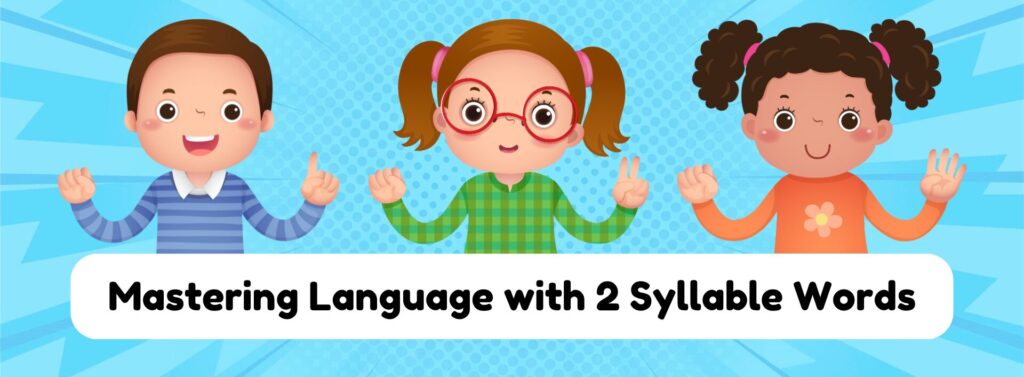
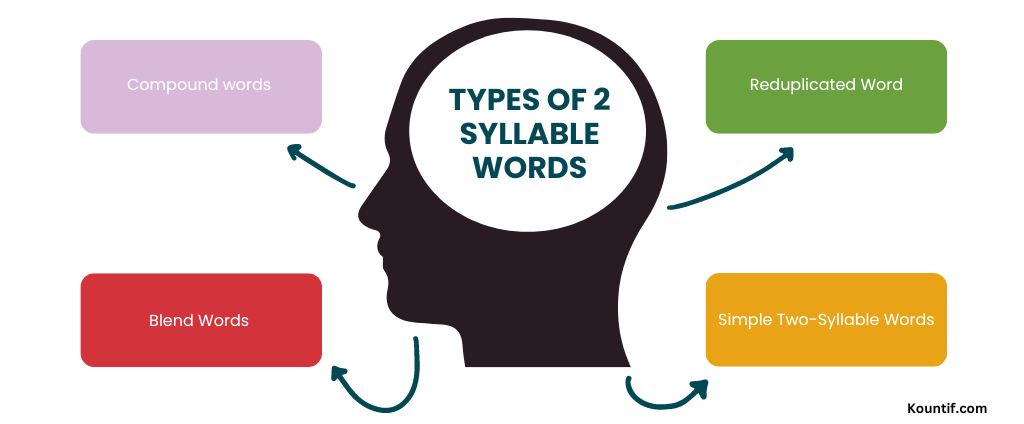
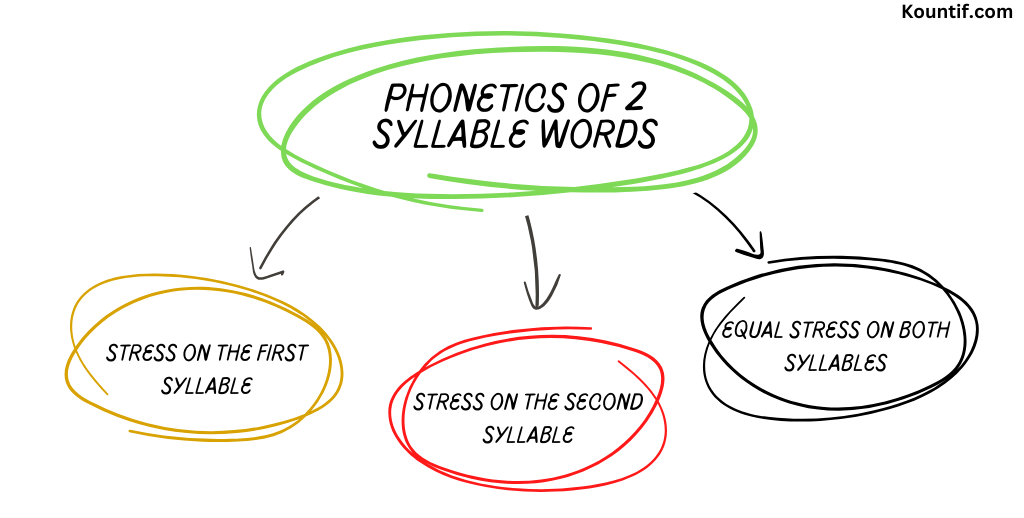
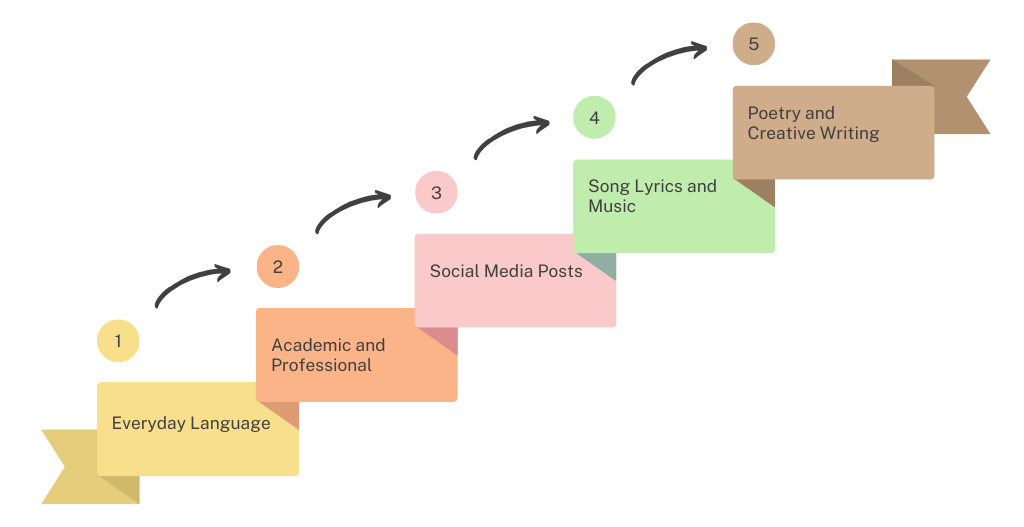

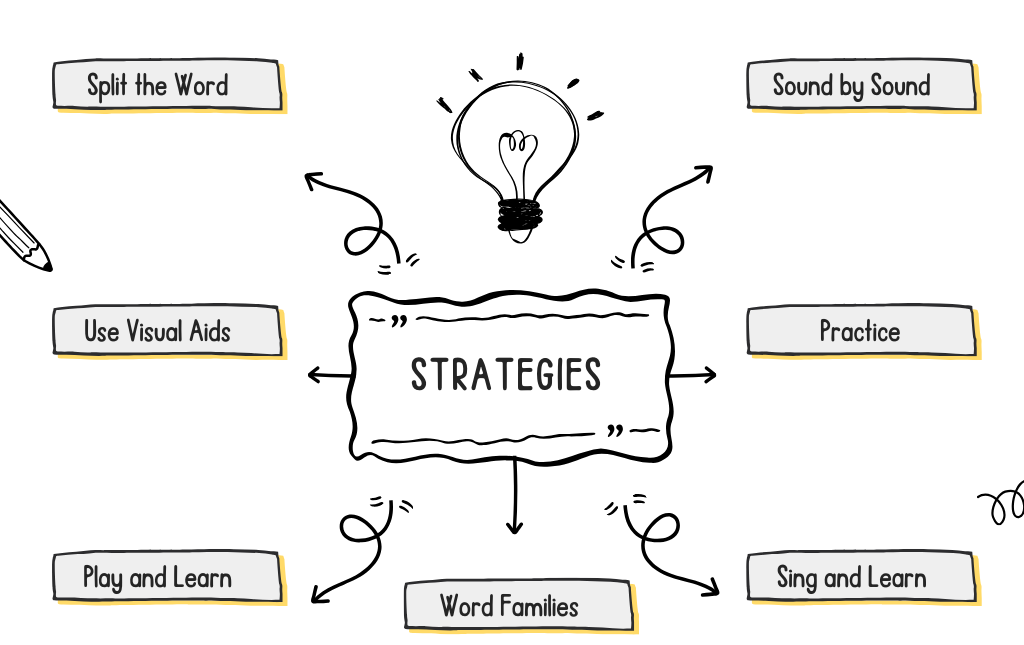
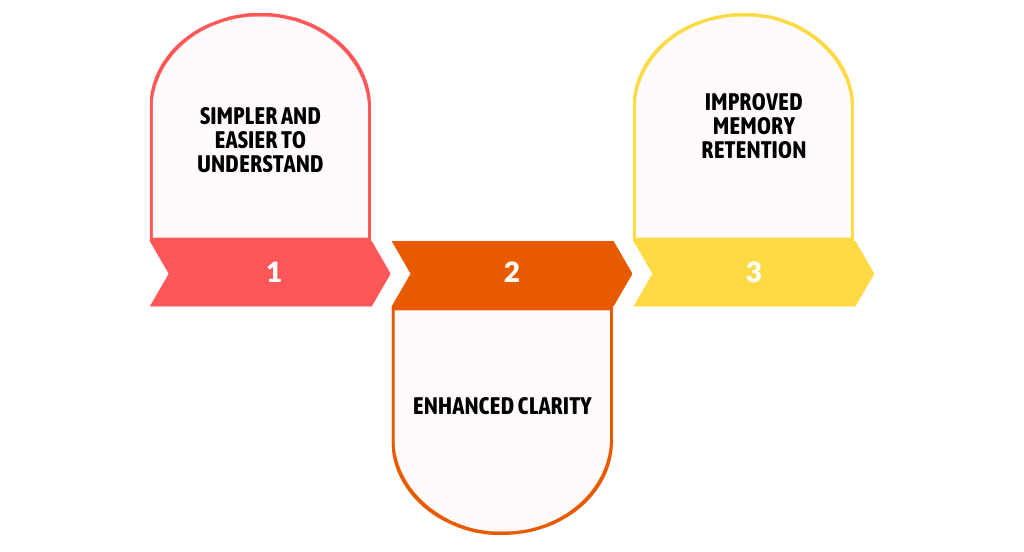
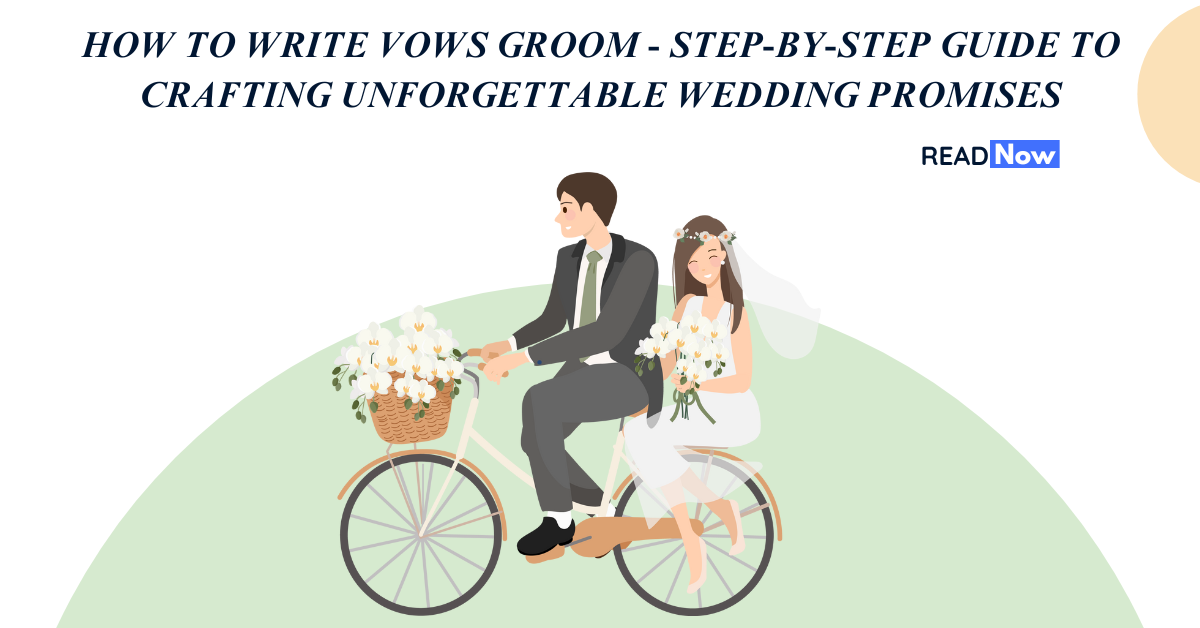
![How to Write Acknowledgments for a Book [Complete Guide]](https://kountif.com/wp-content/uploads/2024/08/How-to-Write-Acknowledgments-for-a-Book-1-1.png)